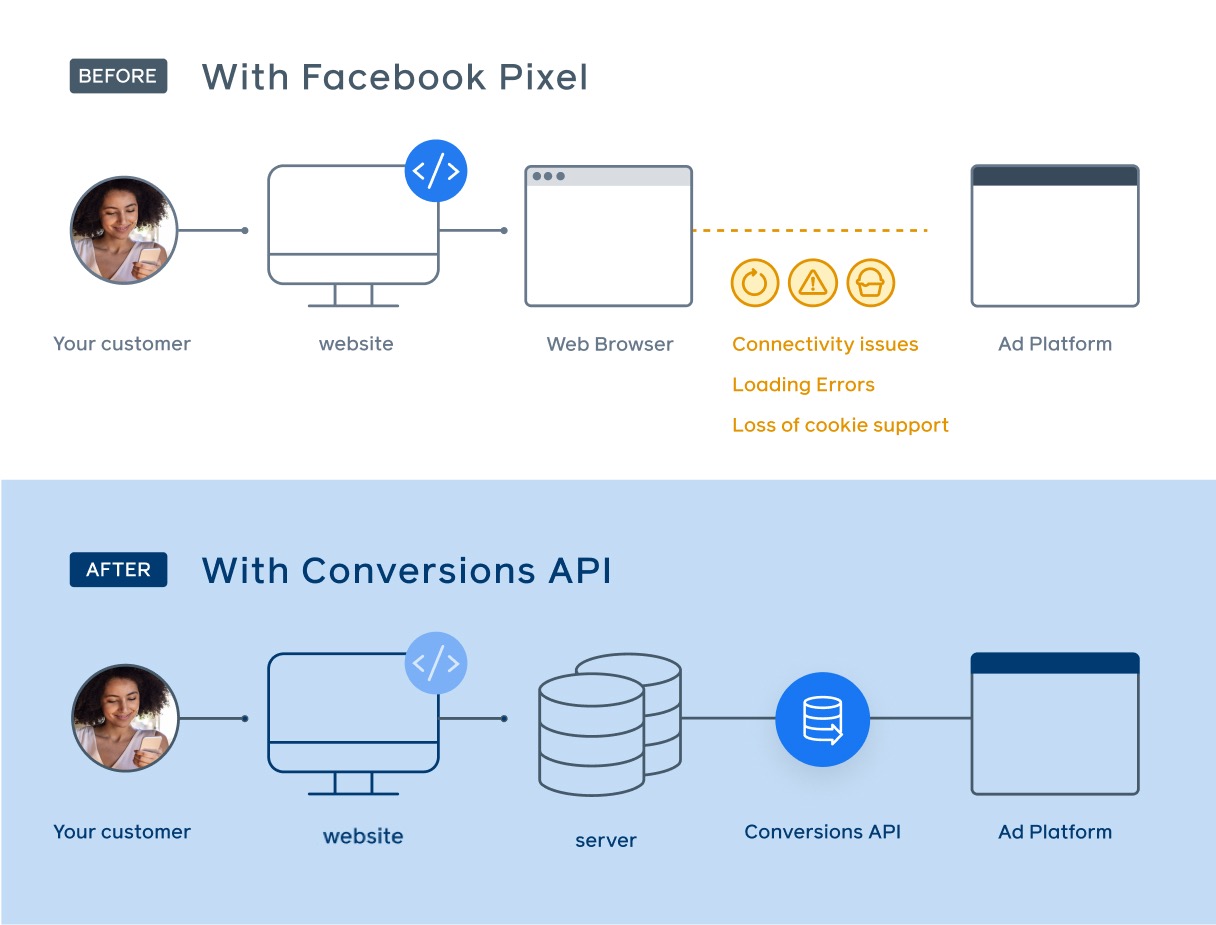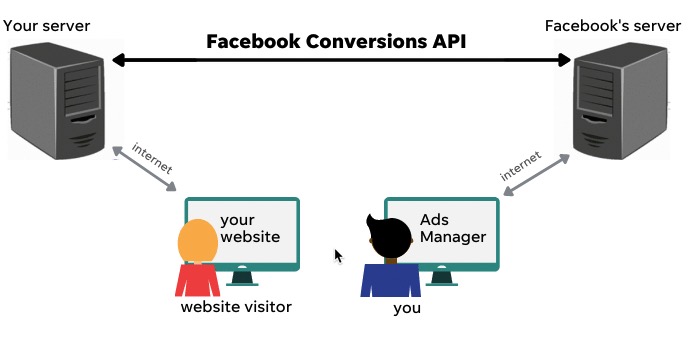How to improve the accuracy of Meta Pixel using capi


The accuracy and power of tracking via the Facebook pixel has been diminishing since the iOS 14 privacy features were introduced, along with the certain death of cookies. If you or the person running your Facebook ads still rely on the pixel alone, reporting will be in accurate and budget will be wasted.
To help remedy the change Facebook themselves have provided improved tracking tools, most notably the Facebook Conversion API, or CAPI. Although using CAPI alone will help reporting, for more stringent reporting UTM’s are suggested to help utilise SSOT reporting.
What is the Facebook Conversions API (CAPI)?
Quoting Facebook:
“Conversions API is a Facebook Business Tool that lets you share key web and offline events, or customer actions, directly from your server to Facebook’s.”
What does that mean?
- API is short for application programming interface, or a connection between 2 applications, such as your website and Facebook.
- Web and offline events are actions on your website, such as filling out a form or making a purchase
- Your server is where your website is hosted
- Facebooks server is where Facebook ads are served from
To put it another way, the Conversion api connects your websites engagement to Facebook which improves reporting and ensures you ads are more effective, or, visually…

The Facebook pixel intends to do the same thing, however as mentioned earlier, due to iOS14 and the change in cookies globally, does not work accuratly. Why is that the case? Simply because the pixel relies on your browser to store the data for Facebook to refer to.
The conversion API, or CAPI users your server to store this information, which Facebook can access.
Here’s how the Facebook pixel works:
![]()
What can CAPI, or the conversion api track?
CAPI can track the same standard events the Facebook pixel tracks,
- Add payment info
- Add to cart
- Add to wishlist
- Customize product
- Complete registration
- Contact (phone, SMS, email, chat)
- Donate
- Find location searches for your store in a website or app
- Initiate checkout
- Lead
- Page view
- Purchase
- Schedule: books appointment
- Search: sight search
- Start Trial
- Submit Application
- Subscribe
- View Content
Book a free strategy session today
Book a free session to elevate your online performance. Save time and costs with our comprehensive, streamlined approach.
- Meet with a strategy specialist to build a growth plan.
- Increase your media performance by up to 200%
- Improve business efficiencies to increase ROI via automation and increase profit
- We cut to the chase. What digital marketing is actually working?
Why use Facebooks CAPI?
Accurate reporting and improve Ad performance. It’s that simple. If you’re not using CAPI, your budget will be getting in part wasted, due to the fact your reporting will be inaccurate, not to mention you’ll be giving Facebooks Ad algorithm the wrong data to work with.
- CAPI resolves VPN and Adblocker issues
- CAPI gets around the iOS privacy issues
- CAPI will be mandatory when cookies are gone
Use Facebook pixel, and CAPI together
To ensure more data is collected, and used in your Facebook Ad strategy, both reporting methods should be used together. Why?
- CAPI collects information the pixel cant’
- Facebook pixel still can collect some information, which CAPI can’t collect
- Facebook pixel is still somewhat effective for non iOS users
- Build stronger audiences with both
- Ensure that you have deduplicated the events, this can be technical, but should be done to avoid inaccurate reporting.
What about UTMs vs CAPI?
If you’re running Facebook ads without other channels, CAPI might be enough for your strategy. However if you using several channels that rely on your website, a single source of truth reporting is required, which in many instances will be Google Analytics. Why? Google Analytics and Facebook will both attempt to claim the conversion / sale / event.
The mess of Facebook reporting vs analytics:
![]()
Now this can become technical and we’ll explain via our attribution modelling recommendations, however using UTMS on your Facebook ads will ensure all success is reported in analytics, providing a SSOT reporting model.
Visually, this is how SSOT reporting should work via a UTM for traffic to your website

To wrap things up:
- Move from pixel reporting to include CAPI
- Use UTMS for paid media traffic ads
- Utilise a SSOT reporting methodology to improve ROI
If you would like help in improving your reporting, or audit how you Ad accounts and analytics are setup, contact our analytics team today.